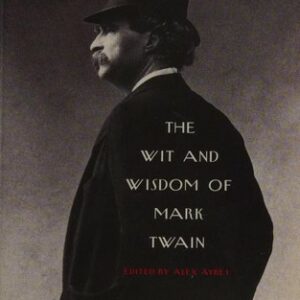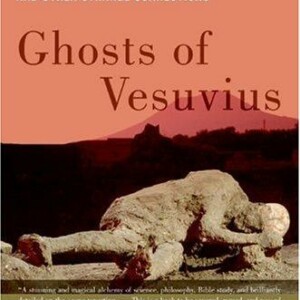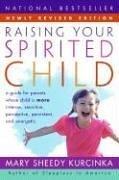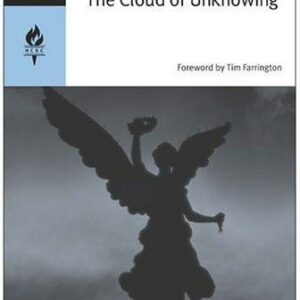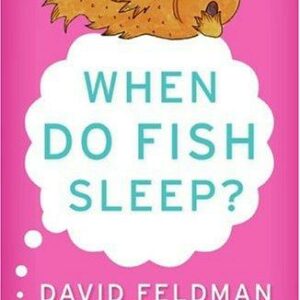Northanger Abbey
$8.00
| Title | Range | Discount |
|---|---|---|
| Trade Discount | 5 + | 25% |
- Description
- Additional information
Description
Jane Austen’s first novel, Northanger Abbey—published posthumously in 1818—tells the story of Catherine Morland and her dangerously sweet nature, innocence, and sometime self-delusion. Though Austen’s fallible heroine is repeatedly drawn into scrapes while vacationing at Bath and during her subsequent visit to Northanger Abbey, Catherine eventually triumphs, blossoming into a discerning woman who learns truths about love, life, and the heady power of literature. The satirical Northanger Abbey pokes fun at the gothic novel while earnestly emphasizing caution to the female sex.
This Modern Library Paperback Classic is set from the first edition of 1818.“Jane Austen is the Rosetta stone of literature.” —Anna QuindlenRobert Kiely is Loker Professor of English and American Literature at Harvard. His most recent books are Reverse Tradi-tion: Postmodern Fictions and the Nineteenth Century Novel and Still Learning: Spiritual Sketches from a Professor’s Life.
1. Robert Kilely, in his Introduction, says that although Northanger Abbey satirizes gothic novels, what?s more significant about it is the manner in which Jane Austen bases her narrative on conversation. How is conversation used in the novel as a narrative device? How does conversation both aid and hinder the characters?
2. Jane Austen deftly shifts voices so as to allow us to see the world through Catherine?s eyes and her own eyes (often through Henry Tilney). What effects does this have on the reader?
3. What gothic elements are incorporated into the novel? What are the anti-gothic elements and figures of the novel? How does Austen juxtapose Bath and the Abbey?
4. It can be argued that Henry Tilney is a foil to John Thorpe. What other characters serve as foils to each other? Does Catherine have a foil?
5. Consider the use of sarcasm in the novel. How does Henry Tilney?s sarcasm force Catherine to think things through more thoroughly and expand her values and notions?
6. The novel depicts a disparity of class and wealth, most notably between the Thorpes and the Tilneys. What importance does social convention hold? Is there a certain relevance between class and behavior appertaining to the Thorpes and Tilneys? Is it ever justifiable to break with social convention and propriety?
7. One of the major elements in Northanger Abbey is reading, particularly reading novels. What are some of the differences between novels and reality that Austen is discerning? Is she convinced that novels are worthless? What is surprising about the way novels were perceived in the early nineteenth century?
8. ?No one who had ever seen Catherine Morland in her infancy, would have supposed her to be a heroine,? Jane Austen writes in her opening paragraph. Do you agree that Catherine is a heroine? How does she develop through the novel and what does she learn about her self and the world around her?
Chapter I
No one who had ever seen Catherine Morland in her infancy, would have supposed her born to be an heroine. Her situation in life, the character of her father and mother, her own person and disposition, were all equally against her. Her father was a clergyman, without being neglected, or poor, and a very respectable man, though his name was Richard—and he had never been handsome. He had a considerable independence, besides two good livings—and he was not in the least addicted to locking up his daughters. Her mother was a woman of useful plain sense, with a good temper, and, what is more remarkable, with a good constitution. She had three sons before Catherine was born; and instead of dying in bringing the latter into the world, as any body might expect, she still lived on—lived to have six children more—to see them growing up around her, and to enjoy excellent health herself. A family of ten children will be always called a fine family, where there are heads and arms and legs enough for the number; but the Morlands had little other right to the word, for they were in general very plain, and Catherine, for many years of her life, as plain as any. She had a thin awkward figure, a sallow skin without colour, dark lank hair, and strong features;—so much for her person;—and not less unpropitious for heroism seemed her mind. She was fond of all boys’ plays, and greatly preferred cricket not merely to dolls, but to the more heroic enjoyments of infancy, nursing a dormouse, feeding a canary-bird, or watering a rose-bush. Indeed she had no taste for a garden; and if she gathered flowers at all, it was chiefly for the pleasure of mischief—at least so it was conjectured from her always preferring those which she was forbidden to take.—Such were her propensities—her abilities were quite as extraordinary. She never could learn or understand any thing before she was taught; and sometimes not even then, for she was often inattentive, and occasionally stupid. Her mother was three months in teaching her only to repeat the “Beggar’s Petition;” and after all, her next sister, Sally, could say it better than she did. Not that Catherine was always stupid,—by no means; she learnt the fable of “The Hare and many Friends,” as quickly as any girl in England. Her mother wished her to learn music; and Catherine was sure she should like it, for she was very fond of tinkling the keys of the old forlorn spinnet; so, at eight years old she began. She learnt a year, and could not bear it;—and Mrs. Morland, who did not insist on her daughters being accomplished in spite of incapacity or distaste, allowed her to leave off. The day which dismissed the music-master was one of the happiest of Catherine’s life. Her taste for drawing was not superior; though whenever she could obtain the outside of a letter from her mother, or seize upon any other odd piece of paper, she did what she could in that way, by drawing houses and trees, hens and chickens, all very much like one another.—Writing and accounts she was taught by her father; French by her mother: her proficiency in either was not remarkable, and she shirked her lessons in both whenever she could. What a strange, unaccountable character!—for with all these symptoms of profligacy at ten years old, she had neither a bad heart nor a bad temper; was seldom stubborn, scarcely ever quarrelsome, and very kind to the little ones, with few interruptions of tyranny; she was moreover noisy and wild, hated confinement and cleanliness, and loved nothing so well in the world as rolling down the green slope at the back of the house.
Such was Catherine Morland at ten. At fifteen, appearances were mending; she began to curl her hair and long for balls; her complexion improved, her features were softened by plumpness and colour, her eyes gained more animation, and her figure more consequence. Her love of dirt gave way to an inclination for finery, and she grew clean as she grew smart; she had now the pleasure of sometimes hearing her father and mother remark on her personal improvement. “Catherine grows quite a good-looking girl,—she is almost pretty to day,” were words which caught her ears now and then; and how welcome were the sounds! To look almost pretty, is an acquisition of higher delight to a girl who has been looking plain the first fifteen years of her life, than a beauty from her cradle can ever receive.
Mrs. Morland was a very good woman, and wished to see her children every thing they ought to be; but her time was so much occupied in lying-in and teaching the little ones, that her elder daughters were inevitably left to shift for themselves; and it was not very wonderful that Catherine, who had by nature nothing heroic about her, should prefer cricket, base ball, riding on horseback, and running about the country at the age of fourteen, to books—or at least books of information—for, provided that nothing like useful knowledge could be gained from them, provided they were all story and no reflection, she had never any objection to books at all. But from fifteen to seventeen she was in training for a heroine; she read all such works as heroines must read to supply their memories with those quotations which are so serviceable and so soothing in the vicissitudes of their eventful lives.
From Pope, she learnt to censure those who
“bear about the mockery of woe.”
From Gray, that
“Many a flower is born to blush unseen, “And waste its fragrance on the desert air.”
From Thompson, that
——“It is a delightful task “To teach the young idea how to shoot.”
And from Shakspeare she gained a great store of information—amongst the rest, that
———“Trifles light as air, “Are, to the jealous, confirmation strong, “As proofs of Holy Writ.”
That “The poor beetle, which we tread upon, “In corporal sufferance feels a pang as great “As when a giant dies.”
And that a young woman in love always looks ——“like Patience on a monument “Smiling at Grief.”
So far her improvement was sufficient—and in many other points she came on exceedingly well; for though she could not write sonnets, she brought herself to read them; and though there seemed no chance of her throwing a whole party into raptures by a prelude on the pianoforte, of her own composition, she could listen to other people’s performance with very little fatigue. Her greatest deficiency was in the pencil—she had no notion of drawing—not enough even to attempt a sketch of her lover’s profile, that she might be detected in the design. There she fell miserably short of the true heroic height. At present she did not know her own poverty, for she had no lover to pourtray. She had reached the age of seventeen, without having seen one amiable youth who could call forth her sensibility; without having excited one real passion, and without having excited even any admiration but what was very moderate and very transient. This was strange indeed! But strange things may be generally accounted for if their cause be fairly searched out. There was not one lord in the neighbourhood; no—not even a baronet. There was not one family among their acquaintance who had reared and supported a boy accidentally found at their door—not one young man whose origin was unknown. Her father had no ward, and the squire of the parish no children.
But when a young lady is to be a heroine, the perverseness of forty surrounding families cannot prevent her. Something must and will happen to throw a hero in her way.
Mr. Allen, who owned the chief of the property about Fuller- ton, the village in Wiltshire where the Morlands lived, was ordered to Bath for the benefit of a gouty constitution;—and his lady, a good- humoured woman, fond of Miss Morland, and probably aware that if adventures will not befall a young lady in her own village, she must seek them abroad, invited her to go with them. Mr. and Mrs. Morland were all compliance, and Catherine all happiness.US
Additional information
| Weight | 8.2 oz |
|---|---|
| Dimensions | 0.5000 × 5.2000 × 8.0000 in |
| Series | |
| Imprint | |
| Format | |
| ISBN-13 | |
| ISBN-10 | |
| Author | |
| Audience | |
| BISAC | |
| Subjects | jane austen gifts, satire, fiction books, books fiction, realistic fiction books, classics books, humorous books, gothic novels, wish, classic literature, jane austen books, jane austen book set, emma jane austen, persuasion book jane austen, northanger abbey jane austen, summer reads 2022, Claudia Johnson, jane austen book, funny books, england, classic, fiction, classics, FIC019000, humor, novels, classic novels, Literature, Jane Austen, literary fiction, Mansfield Park, Northanger Abbey, Gothic literature, humor books, booktok books |



